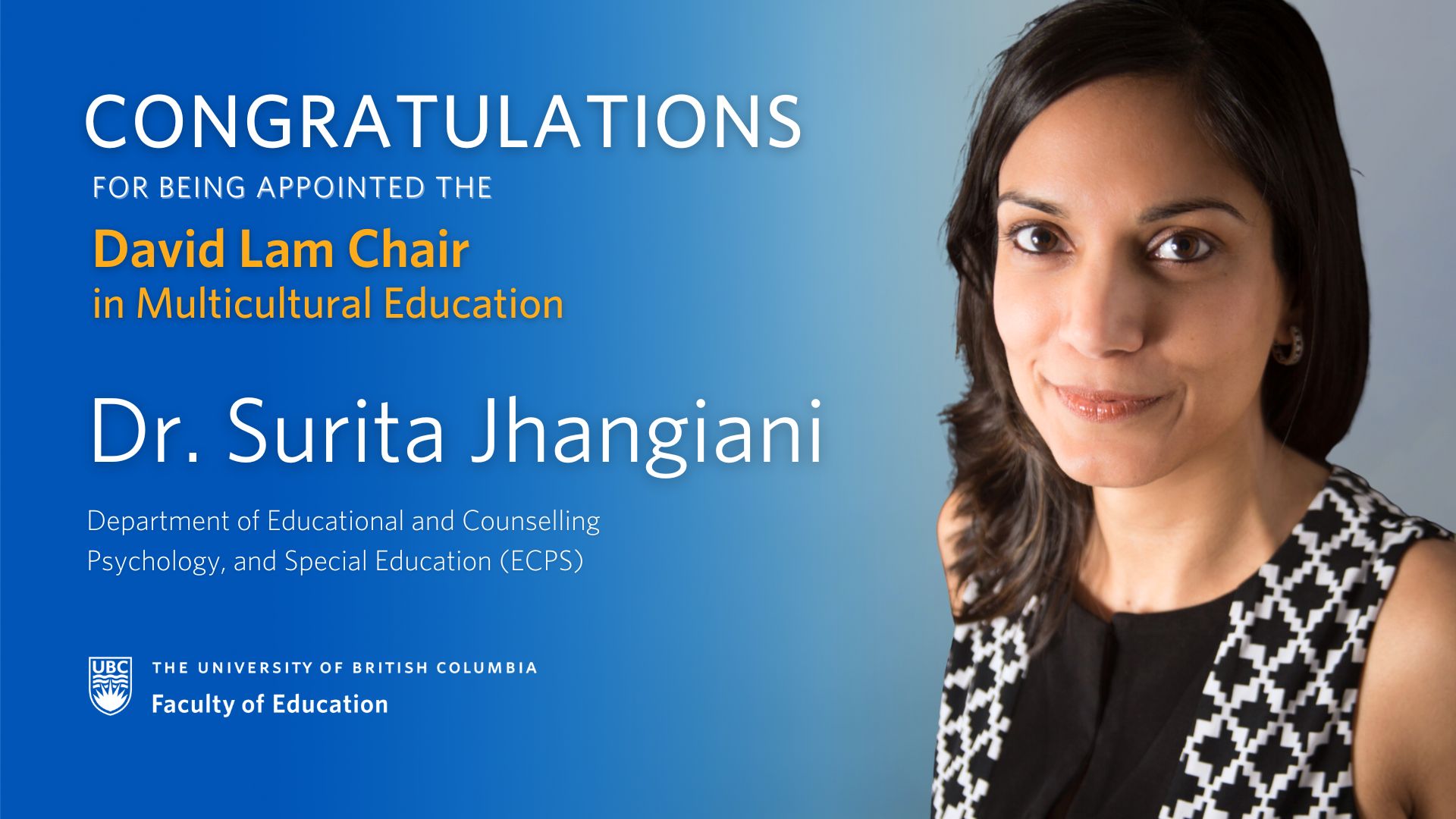June 29, 2023

Congratulations to Dr. Surita Jhangiani being appointed David Lam Chair in Multicultural Education for a three-year term.
We are delighted to announce the appointment of Dr. Surita Jhangiani from the Department of Educational and Counselling Psychology, and Special Education (ECPS) as the David Lam Chair in Multicultural Education for a three-year term (July 1, 2023 through June 30, 2026). The advisory committee was impressed with Dr. Jhangiani’s exciting vision for the Chair and her concrete plans to fulfill the mandate.
Redressing epistemic and social injustices
Dr. Jhangiani’s vision for the Chair is to equip educators to redress epistemic and social injustices by identifying how our educational systems privilege dominant epistemologies and pedagogies while disadvantaging and challenging the testimonial credibility of others. She intends to leverage three fundamental open pedagogical principles to progress the goals of the Chair as a means to advance critical multicultural education:
- Building community: facilitating connections across the boundaries and contexts of learning experiences, racialized and cultural histories, viewpoints, classrooms, campuses, communities, and countries.
- Mediating agency: challenging traditional power structures between students and instructors and moving towards a more collaborative and richer learning experience with students from diverse backgrounds. Too often a top-down approach is used in our education system, which undermines students’ lived experiences and agency.
- Open Access: focusing on “reducing barriers that prevent equitable access to education, including economic, technical, social, cultural, and political factors” (Sinkinson & McAndrew, 2020).
Disrupting embedded power structures in service of equity
These principles align with critical multicultural education by disrupting embedded power structures in service of equity and by embracing inclusive practices that centre the voices and perspectives of racialized and cultural minorities.
The David Lam Chair in Multicultural Education was established in 1991 to support increased interest, programming, and engagement in multicultural and anti-racist education, and to assist schools to foster multiculturalism. The Chair has a mandate to:
- Carry out research and engage in educational leadership activities in multicultural studies in education
- Advise on the design of programs or courses that would build capacity for educators (pre-service, in-service, graduate, community-engaged) in intercultural and cross-cultural understanding concerning social justice and intersectional, anti-racist, decolonizing politics of difference and in/equity;
- Work with an advisory group representing the university, community and schools to foster a climate of intercultural communication, anti-racism and anti-oppression politics and practices, and activism;
- Facilitate community engagement and the dissemination of scholarship in multicultural and social justice studies in education;
- Offer annually an interdisciplinary course in multicultural studies in education that will attract broad participation across the Faculty (and potentially beyond);
- Conduct and arrange public lectures, events or media networks in multicultural studies in education;
- Encourage and promote the growth of such scholarship and praxis across the University and beyond.
Visit Dr. Jhangiani’s profile to learn more about her work.